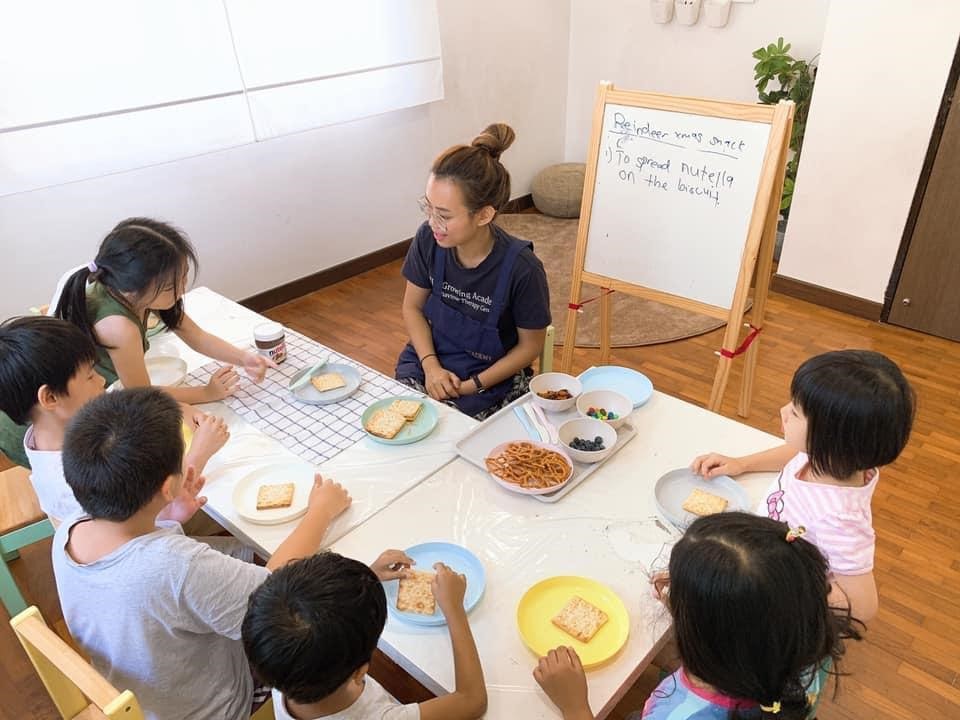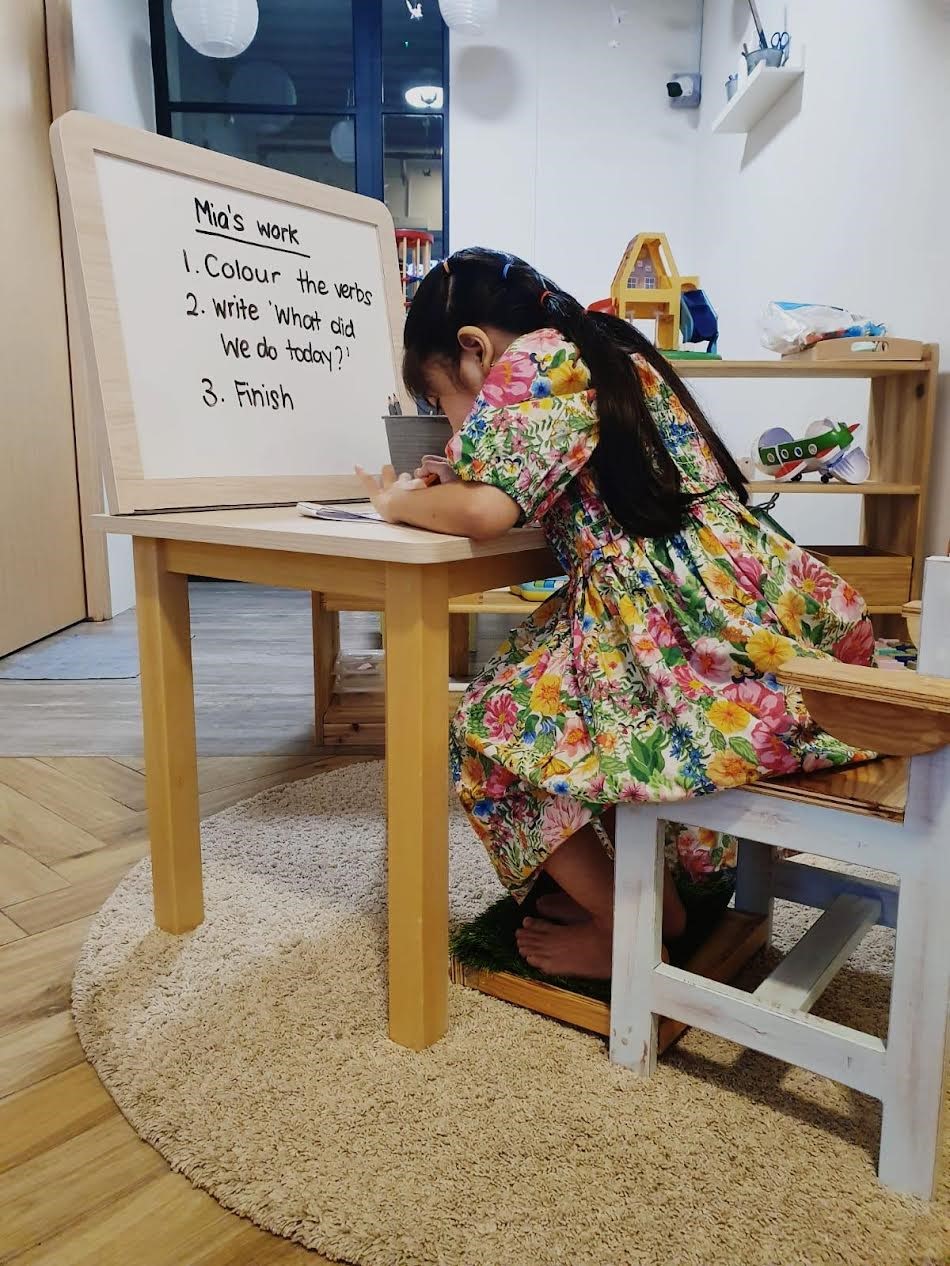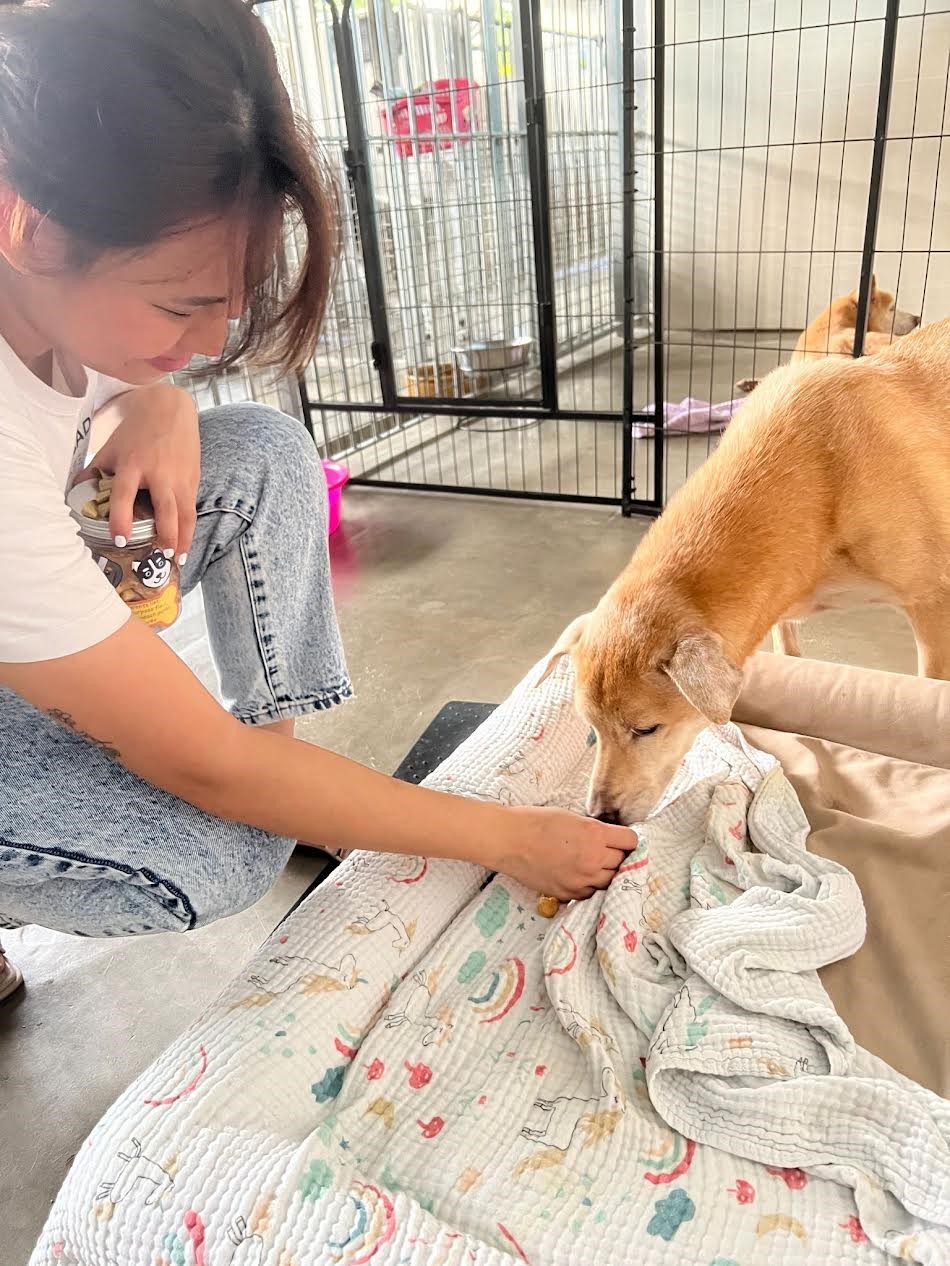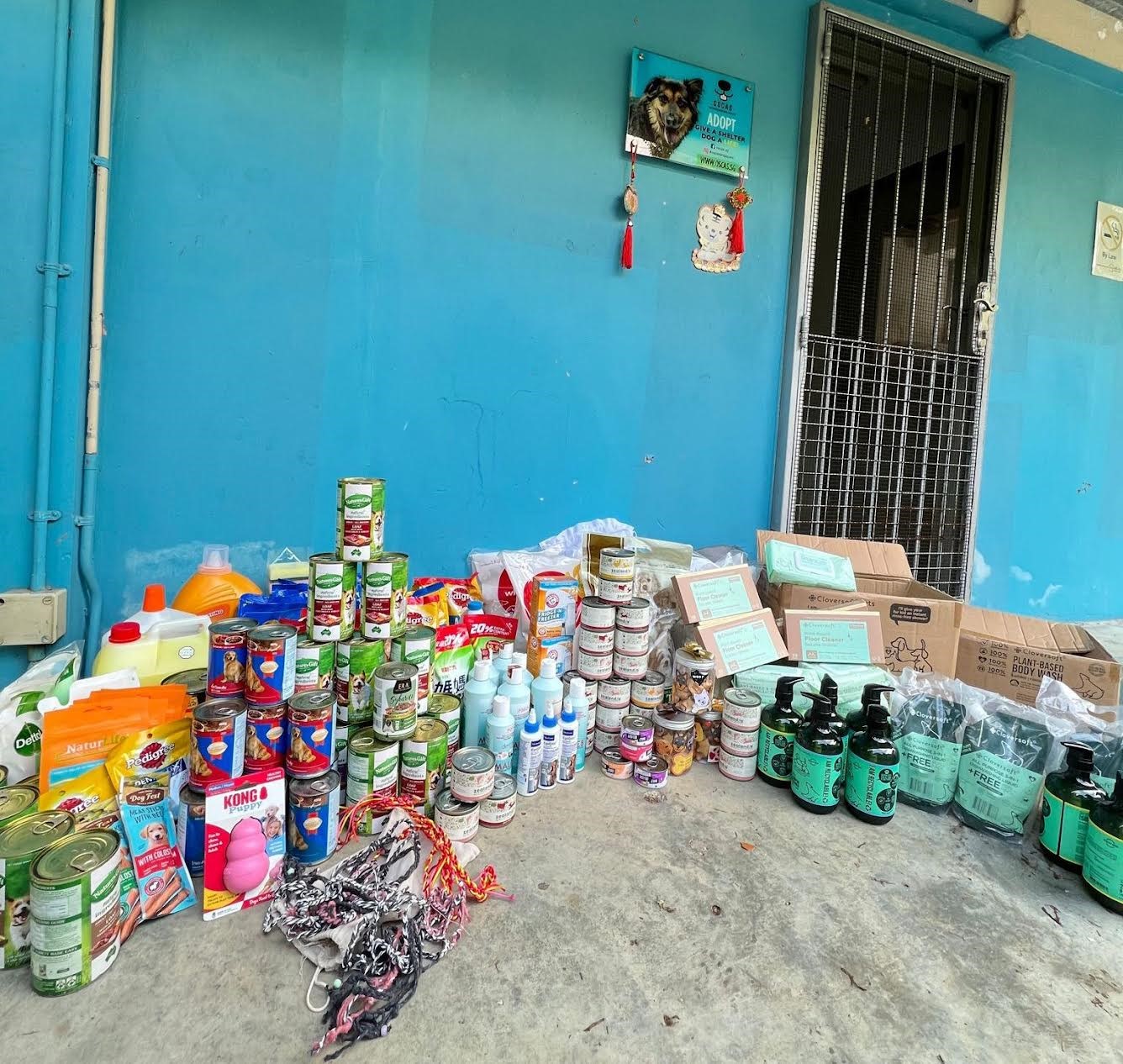Empowering Every Child: Q&A With An Early Intervention Educator
Submitted by Advertiser KiasuParent
Curious about what goes on in an inclusive preschool for children with special needs? Yang Ling, the lead therapist and co-founder of The Growing Academy, gives us a peek behind the scenes!

Tell us about what you do.
I’m a behavioural therapist who provides learning support for kids with special needs. I focus on giving kids the confidence to reach new milestones, and I do this by breaking a task into manageable parts, so that it is achievable step by step.
Something else that others may not know about my work: I always need a good back massage after my sessions!
For therapists who work with children, we often sit on kid-sized chairs that are too tiny for us. But it’s part of our job, because we need to get down to a child’s eye level in order to interact and play with them. So at the end of each therapy session, we may experience all kinds of aches and pains from sitting on kiddy chairs. In fact, our therapists have asked for massage chairs to help them recover!
Apart from working directly with children, I also connect with parents, in order to create a holistic support system that can exist outside of our classrooms.
How do you reach out to parents?
We use an app to share daily updates with parents. The children in our schools are mostly between two and six years old — many of them have speech development issues, but parents really want to know what their children did in school, what they had for lunch, and whether they coped well for the day.
I should also mention that we’re very open with our updates! For example, if a child cries, has a tantrum, or refuses to eat, we will let parents know. I think it’s important to be honest so that we can work towards a consistent approach to help the child. If we’re able to say, “Your child didn’t want to drink water today, but here’s what we did to encourage him to take a sip,” we can also show that over time, there is progression and improvement.
Do you work with parents in their homes too?
I carry out joint parent-and-child home therapy sessions. For instance, some of our kids have separation anxiety with their parents, to the extent that the parent (commonly the mother) can’t even go to the bathroom. When this happens, I will visit the home to work with both parent and child.
To address separation anxiety, we will start with small steps. I may say to the mom, “Why don’t you get up to get some tissues, just across the room?” Sometimes a child may start crying when this happens, and I’ll guide the mom to use reassurances, such as “Mommy is going to get something, and I’ll be back.”
Parents can get anxious when their children cry, and they may think, “Are we being too harsh? Is my child too young for such strategies?” However, with the right guidance and consistency, parents will discover that their children are teachable, and they will be more motivated to follow through with the programme steps.
With consistent sessions, the children I’ve worked with begin to cry less when the parent exits the room, and they can be without their parent for a longer duration. We’ve even seen progress within a single session, and I’ll feel so happy for the family! But at the same time, I will remind parents that these efforts need to be sustained.
Apart from providing therapy, you’ve also created inclusive furniture for kids. Tell us more.
Through our home visits, we’ve observed that many families don’t have furniture that is adapted for kids with special needs. In fact, some families may not even have child-sized tables and chairs at home. Previously, we advised parents to buy kid-friendly furniture from places like IKEA, but we also realised that special needs children might benefit from something different. That’s when we got together with a furniture company called Edupod to brainstorm chair and table designs for special needs children.

One of our ideas is a chair with a pull-out drawer at its base, where parents can place sensory pads. It can be hard to get children with special needs to stay in their seats for an extended period, but the sensory pad makes it much more enticing! Parents can make the pads themselves, out of any material that has an interesting texture, such as something soft and furry. We use these chairs in our classrooms, and our students love rubbing their feet against the sensory pads.
What’s next for you and The Growing Academy?
We want to organise more activities for our students and their families, where we can get to know one another better, as well as support a good cause.
Something that I’m passionate about is animal welfare — I’m a dog lover and I volunteer to feed stray dogs on a weekly basis. Often, vulnerable dogs are left on the streets because animal shelters are fully stretched, and they can’t provide space, food, or medical attention. Because of this, I wanted to spread awareness about animal welfare and adoption among our students and their families, to create opportunities for them to look beyond their own lives and make a difference.

When we first started talking to our students about stray or abandoned dogs, it was a novel concept for them, as they’ve only seen dogs in pet stores. So we said, “Actually there are a lot of doggies in Singapore that don’t have a home, but they still need the same kind of love, care, and food.” To help kids relate to how stray dogs live, we asked questions like, “Do you think you would be very scared if you were alone on the streets at night?” Some of our students understood, and they started saying things like, “That’s so sad and we want to help the doggies!”

Recently, we organised a donation drive to support a local animal shelter. It was a success, thanks to the overwhelming efforts of our students and parents! Everyone worked hard to make suitable gifts like pet collars and dog-friendly cookies, or to collect items that the shelter needed, such as used towels. Some families also visited the shelter, and the kids were able to tell us in class about what they saw, and how they felt about it.
It’s great that you’re bringing families together in meaningful ways. Speaking of family, you work closely with your sister at The Growing Academy.
Yes, my sister Yang Le is a co-founder and fellow therapist at The Growing Academy. When I first started working with special needs children, she was a sports instructor and had her fair share of experience working with special needs kids as well. She did really well, so she decided to become a certified therapist too. We then pooled our savings together to start The Growing Academy. It was a spontaneous decision and a risk that we were willing to take — eventually, I think we won parents over with our sincerity and drive.
Today, I manage our clinical responsibilities, while Le handles our business and administrative matters. What’s reassuring is knowing that we’ll always have each other’s backs. There are good and bad days, and we take turns to be each other’s pillar of support. With my sister by my side, I know that things will work out eventually. We do talk about work all the time, but it doesn’t hurt our relationship. In fact, it helps us to decompress!
Before we wrap up, any advice for parents who are considering therapy for their children?
Some parents are afraid to seek help when their children miss milestones, because they don’t want to label their children as “having special needs.” Or they might think of reasons to justify their child’s delayed development, such as “It runs in the family.”
We’ve had parents bring their children to us at age five or six, and that’s not ideal, because we can start interventions as early as 18 months. It’s especially challenging when kids are older and have multiple issues, and their parents are expecting to place them in mainstream primary schools.
My advice is that early intervention and therapy will never be harmful for a child. If the idea of “therapy” seems intimidating, you can call it an “enrichment class” instead.
But regardless of when parents come to me, my priorities will be to listen, empathise, and build trust. Instead of bad news or a reality check, what I want to give parents is hope, by showing them what we’ve done for other children in the past, and what can be achieved with their child in the future.
This interview is brought to you in partnership with The Growing Academy.